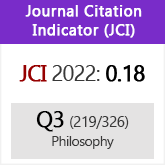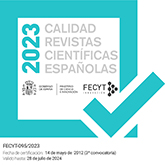Autonomía y heteronomía
DOI:
https://doi.org/10.3989/isegoria.2004.i30.483Abstract
This essay deals with the autonomy/heteronomy dichotomy, that is not equal but is alike the well known one autonomy/authenticity. And its plausible deconstruction is also parallel. I examine the topic that the autonomy presupposes a form of authenticity or, in other terms, that universalism is also a kind of contextualism, in a sense that we only will read or judge actions the same way, because -or when- we belong to a community of autonomous individuals, of universalists. On one hand, it is necessary trying to articulate universalism as something more than wishful thinking, and, at the same time, fighting against relativism or moral skepticism. If we do not want to have recourse to a transcendental argument, we have to think in much more modest terms, which would be necessary to describe this way: Opposite to a kind of transparency of the contexts or its opened character, we have to tend to close the contexts, to consider them as a whole, with the «lack of competence» that its opacity brings out -and our opacity, incidentally -. Transparency derives from the universality of judgement, and conversely. To be a moral subject requires the plasticity to act in opaque contexts and to take in charge it and its consequences.
Downloads
Download data is not yet available.
Downloads
Published
2004-06-30
How to Cite
González Marín, C. (2004). Autonomía y heteronomía. Isegoría, (30), 203–217. https://doi.org/10.3989/isegoria.2004.i30.483
Issue
Section
Notes and Discussions
License
Copyright (c) 2004 Consejo Superior de Investigaciones Científicas (CSIC)

This work is licensed under a Creative Commons Attribution 4.0 International License.
© CSIC. Manuscripts published in both the printed and online versions of this Journal are the property of Consejo Superior de Investigaciones Científicas, and quoting this source is a requirement for any partial or full reproduction.All contents of this electronic edition, except where otherwise noted, are distributed under a “Creative Commons Attribution 4.0 International” (CC BY 4.0) License. You may read here the basic information and the legal text of the license. The indication of the CC BY 4.0 License must be expressly stated in this way when necessary.
Self-archiving in repositories, personal webpages or similar, of any version other than the published by the Editor, is not allowed.














